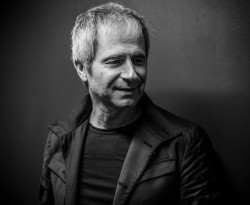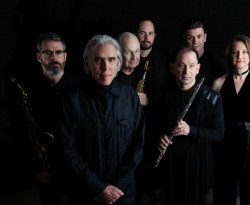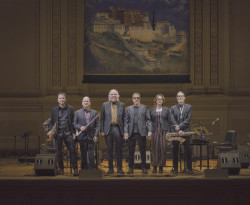Budapest Festival Orchestra
Tzvi Avni, Sibelius, Rachmaninoff
Ticket prices
Add this event to your Google Calendar.
A musical prayer that puts a new spin on the traditions of Eastern European Jewry, the only concerto by Finland's greatest composer, and Rachmaninoff's final piece, famous for its romantic and beautiful melodies, will all be performed in this unusual concert. Violin soloist Clara-Jumi Kang is a versatile musician who, according to The Strad, caresses when necessary but attacks when needed. The conductor will be Lahav Shani, a 35-year-old Israeli. This is not his first time conducting the BFO.
Sibelius's only concerto offers an endless variety of melodies. ”I have wonderful themes for the violin concerto,” the composer wrote of the piece he was preparing, which he revised after its premiere in 1904. Sibelius, who had trained to be a violinist, had a thorough knowledge of the instrument, and thus composed one of the most comfortable, yet most challenging solos for the violin in the history of music literature. It is dedicated to the child prodigy Ferenc Vecsey, who first performed the work at the age of 13.
"It was probably my last flicker,” Rachmaninoff wrote in 1940, three years before his death. The Symphonic Dances, composed in the United States and partly inspired by homesickness, may indeed be a farewell to life. This can be seen in the quotation from his First Symphony in the opening movement of his last symphonic work, the ethereal flight at the end of the waltz movement, or the increasingly heroic sounds of the Dies Irae in the finale. The three dances written for the Philadelphia Orchestra under the leadership of Eugene Ormándy grew out of a ballet plan that went up in smoke. In the ominous, nervously pulsating first dance, we suddenly hear an alto saxophone. The menacing mood, which continues in the waltz, is then echoed in soft, leaping motifs to other realms. The finale, which quotes Russian Orthodox melodies and an excerpt from the composer's own Vespers, ends with: "Thank you, Lord!”
Presented by: Budapest Festival Orchestra
Sections
Conductor:
-
Lahav Shani
Featuring:
-
violinClara-Jumi Kang
Parking information
We wish to inform you that in the event that Müpa Budapest's underground garage and outdoor car park are operating at full capacity, it is advisable to plan for increased waiting times when you arrive. In order to avoid this, we recommend that you depart for our events in time, so that you you can find the ideal parking spot quickly and smoothly and arrive for our performance in comfort. The Müpa Budapest underground garage gates will be operated by an automatic number plate recognition system. Parking is free of charge for visitors with tickets to any of our paid performances on that given day. The detailed parking policy of Müpa Budapest is available here.
Refreshments – Without the Queue
Thanks to our new catering service at the Átrium Snack Bar, you can forget about waiting in line during intermissions for some refreshments and get your order prepped especially for you by the time the intermission actually starts. Find out more about pre-ordering here.
Safe ticket purchase
Dear Visitors, please note that only tickets purchased from the Müpa website and official ticket offices are guaranteed to be valid. To avoid possible inconvenience, we suggest buying tickets to our performances and concerts via the mupa.hu website, the Interticket national network (jegy.hu) or at our official ticket offices.






